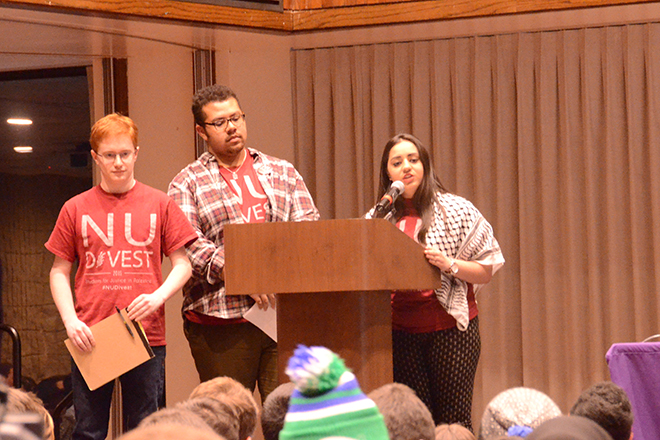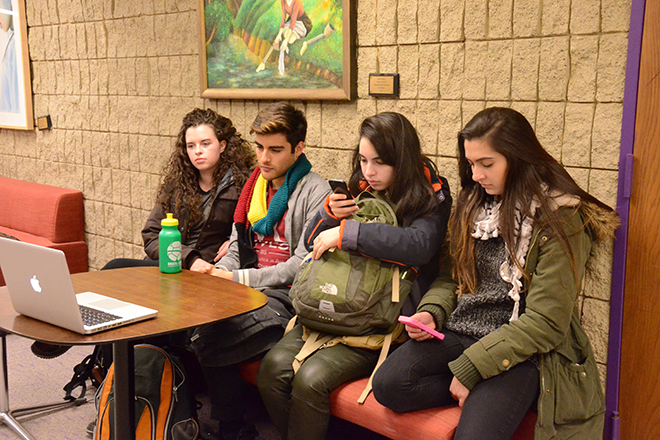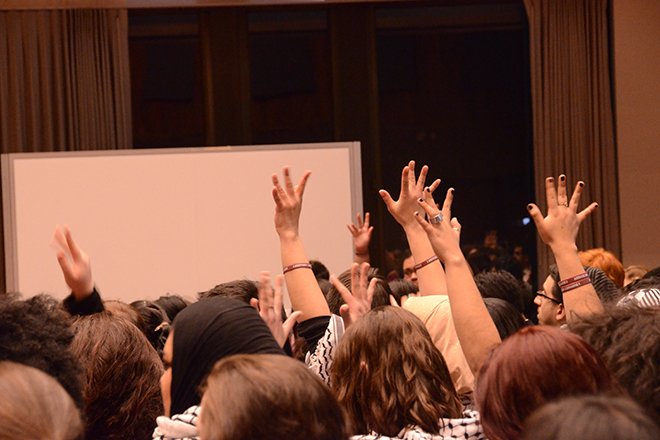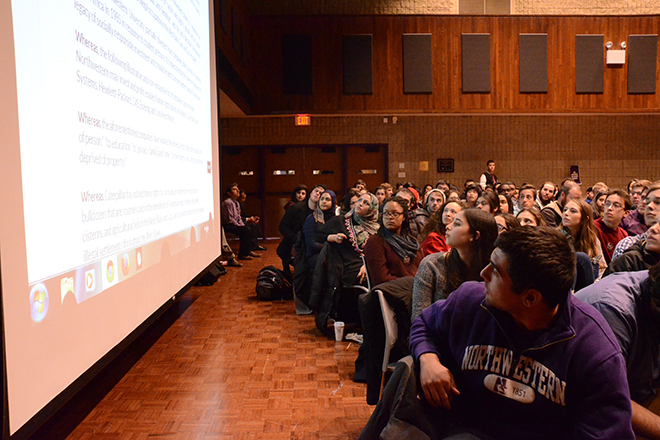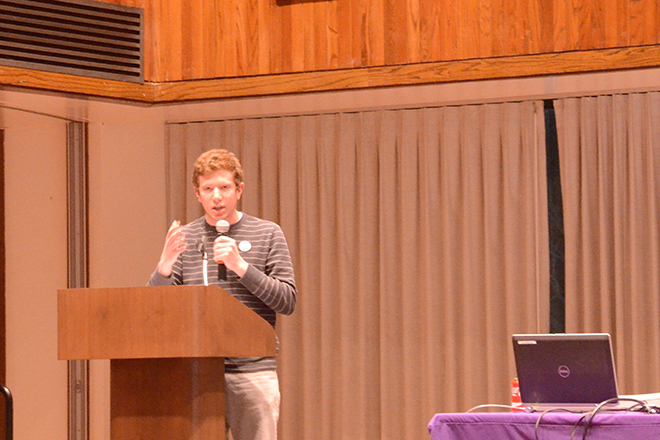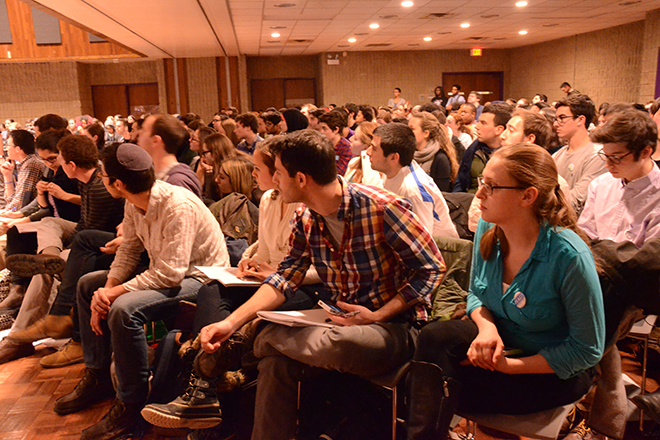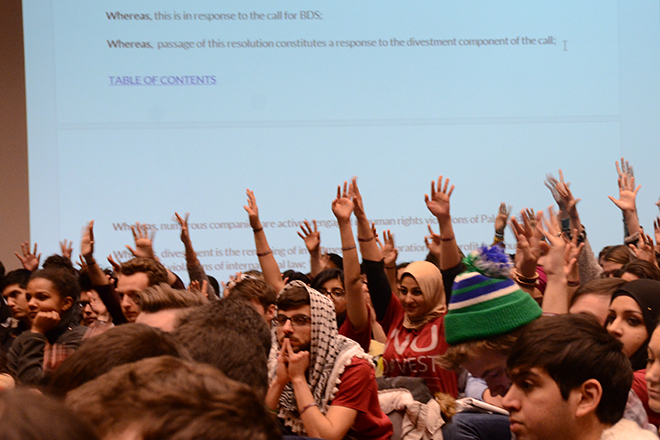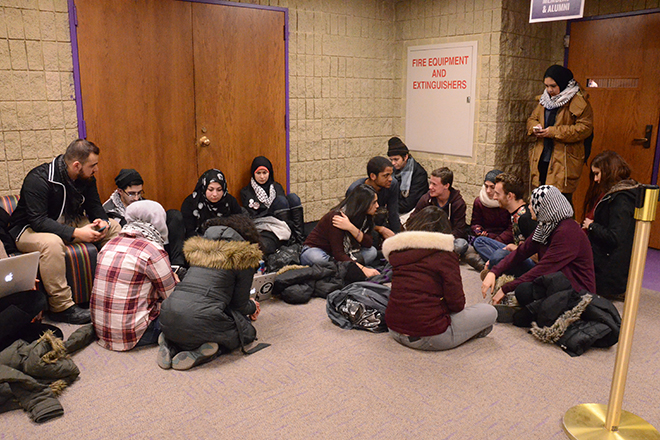Photos by Rosalie Chan / North by Northwestern
Update Feb. 19, 1 p.m.: The Northwestern Coalition for Peace issued a statement via their website around 1 p.m. Thursday expressing the Coalition's disappointment in the passing of the NU Divest resolution.
"While the members of the Coalition are disappointed by the outcome of the ASG vote, we are proud of the courage demonstrated by all who spoke at Wednesday’s Senate meeting," the statement said. "Last night, students spoke passionately about why BDS in all its forms moves Israel and Palestine further from a viable and just resolution to this conflict."
According to the statement, "The hundreds of students who signed our petition and the razor-thin vote margin shows that this decision does not reflect the views of the entire student body."
The Coalition, made up of student groups such as Wildcats for Israel and J Street U, believed working on a two-state-solution is more conducive to peace than divestment or the BDS movement, saying, "...they are counterproductive and drive the parties further away from necessary compromise." Members strongly opposed the passing of the resolution.
Original:
The Associated Student Government passed a resolution at 1:22 a.m. Thursday morning to urge Northwestern to divest from six companies tied to human rights abuses in Palestine.
The passionate debate and palpable emotion in the meeting, which lasted for over six hours, culminated in a secret ballot vote of 24-22, with three Senators abstaining.
Dozens of students, whose supporters sat together on either side of the room and used raised jazz hands to signal their support for a speaker, got two minutes each to speak their part for or against the resolution.
Four hundred students packed the Louis room in Norris where the Senate was moved to accommodate the attendees.
The group that introduced the resolution, NU Divest, gave a brief presentation before the debate outlining their legislation, which urges Northwestern’s board of trustees and investment office to divest funds from Boeing, Elbit Systems, G4S, Caterpillar, Hewlett-Packard and Lockheed Martin, all companies that the group says have been complicit in human rights abuses of Palestinians.
The resolution also calls for future transparency in Northwestern’s investments, which the private university is not required to release.
Representatives from NU Divest said that their resolution did not fully endorse the Boycott, Divestment and Sanctions movement which originated from Palestinian civil organizations, but only the call to divest.
“There is nothing in our resolution talking about boycotts and sanctions,” said Senator Noah Whinston. “We are specifically talking about targeted divestment.”
Students opposed to the resolution, however, said that there was still a link to the movement in the resolution and passing the legislation would be hailed as a victory for BDS, some of whose supporters do not support the existence of Israel.
Many in opposition asked the senators to vote no and instead, in the future, pass a resolution calling for transparency in all investments before targeting those in Palestine.
“You, as ASG senators, have one crucially valuable currency,” said Weinberg senior Joe Eichenbaum. “It is trust that you have between administrators and yourself.
“If you approach the administration with a call for transparency that singles out one state, I guarantee to you that it will fall on deaf ears. I assure you, this has a far greater chance of failure if you don’t call for transparency first, and particular solutions second.”
Some supporters said that passing just a transparency clause likely wouldn't affect this particular situation.
Whinston said that “divesting from Palestine never happens of its own accord,” even in Universities which have a socially responsible policy guiding endowment funds.
Despite the passion and emotion in the room, the debate stayed relatively civil and controlled. Speaker Noah Star fielded questions from either side and used his gavel to silence audible support or dissention of speakers.
He also, about an hour and a half into the meeting, announced that attendees using Yik Yak would be asked to leave, after the social media platform filled with inflammatory statements about the debate.
Many speakers used the platform to share their personal stories of their families’ hardships and tragedies in both Israel and Palestine. Some cried as they spoke and others culminated their speeches with roaring calls to the Senators to vote one way or the other. Others quoted poems and speeches from peace activists like Martin Luther King, Jr. and Nelson Mandela.
The debate also became a discussion of race relations on campus and all over the world. Minority groups, including For Members Only and Alianza, the Hispanic-Latino student alliance, endorsed the resolution, though members of Alianza said they could only represent students in their group or those they had conversations with, not all minorities.
In the multiple times senators motioned to end the debate period and vote, others championed the meeting as an unprecedented event and a safe space for people on both sides to share their stories.
Student attendees were asked to present their Wildcards before entering the Senate meeting, which was moved to the Louis Room in Norris, a larger room than the Senate is usually held in, in order to accommodate the large turnout. During recesses, students were given tickets in order to exit and re-enter the room.
A live stream online was also available for students who were unable to attend in person.
Reporting contributed by Sam Hart.
